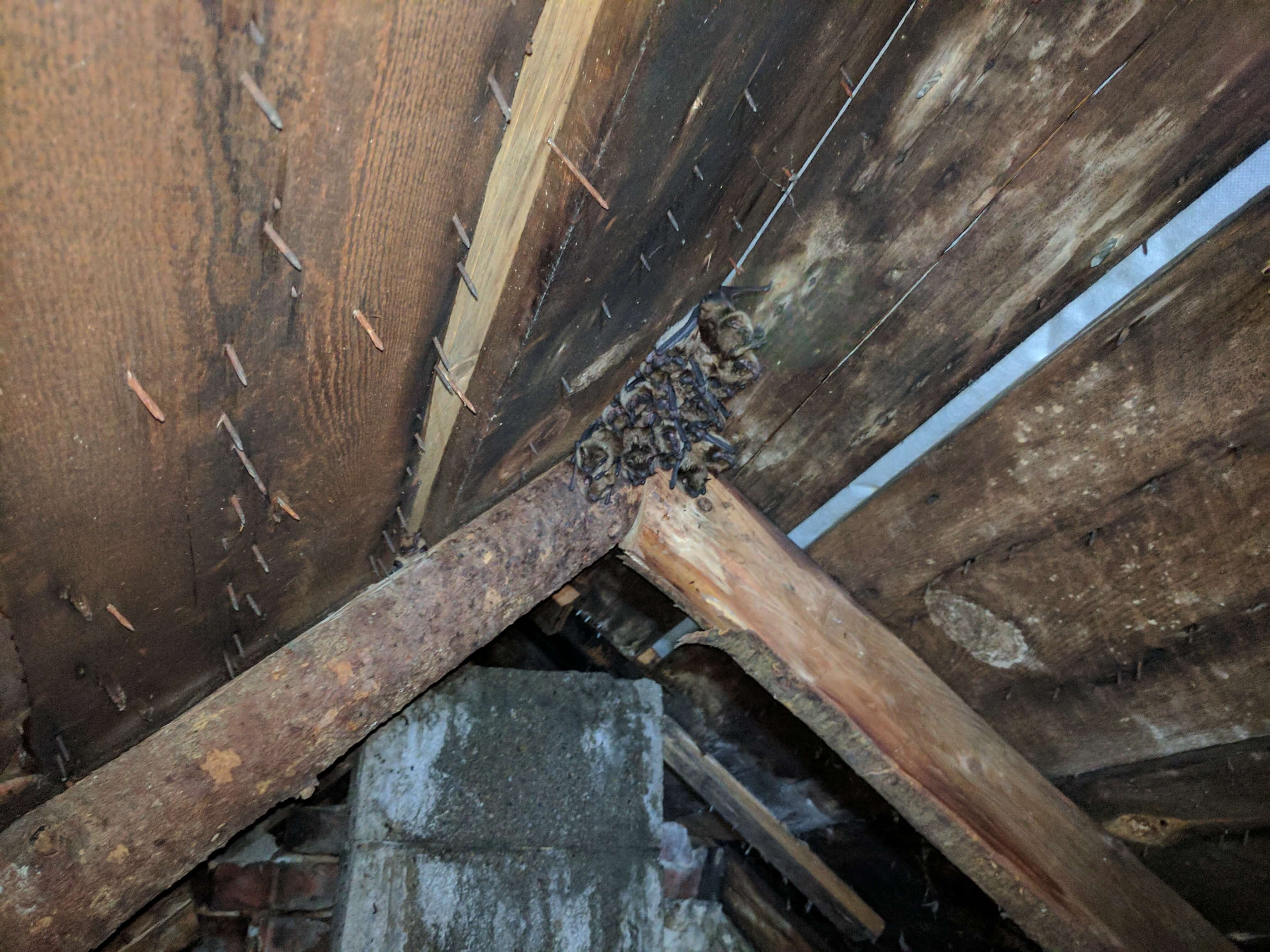Bats travel primarily through flight which expends a great deal of energy.
Bats in attic in winter.
The most prevalent species of bats the small brown bat and the large brown bat are known to do a little bit of both.
They rarely hang from the ceiling in an attic during the winter because it is too cold.
Because of the extreme drop in temperature and lack of flying insects as a food source these bats must find a hospitable environment to use as their hibernaculum to endure the winter.
If this is the case you have to wait until spring when they become active again to remove the bats.
Bats often hibernate under insulation to get near warmth from a wall or ceiling.
Learn more about these hibernation habits so that you can avoid bats taking over your home during the winter season.
Bats in the attic in winter is not a very common occurrence but it does happen on occasion.
The smell can be overpowering and it can also spread diseases.
Professional removal bats in your attic during the winter months will spend a majority of the time being inactive.
During the winter months bats may exit your home to search for water if the temperature move above 45 degrees.
Instead of migrating to a warmer location or heading to a cave they will find a warm area inside an attic and go into hibernation.
In ontario big brown bats and little brown bats can use the attic space of a home as their resting place.
When all bats have left the home for evening hunting this is when you should seal all entry points.
Bats are animals that hibernate during the winter months and will use your home s attic to do it.
If they have a location that s suitable for them to hibernate they might stay in your attic over the winter and in some cases they might fly a couple hundred miles to another location that they find more suitable like a cave that they all congregate in for the winter.

